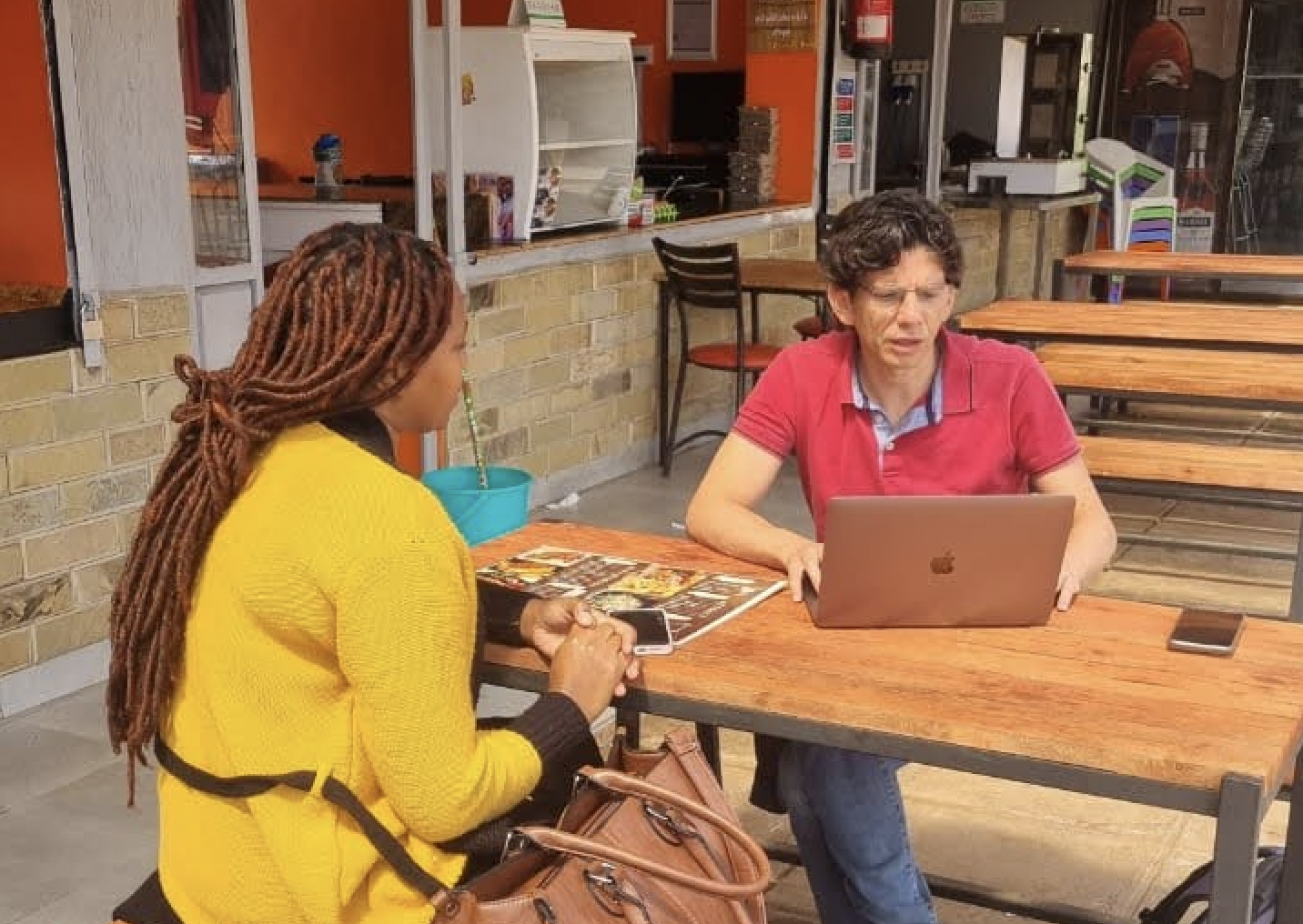Generative AI’s expanding role for Kenyan small businesses beyond ChatGPT

On a recent visit to Kenya, my colleague Anne and I explored Nairobi’s entrepreneurial ecosystem, meeting artisans in Mathare, professionals in Kiambu, and founders in Westlands. We wanted to have open and candid conversations about Generative AI. Were companies at different stages already aware of the technology? What tools were they already using? What were the use cases?
In our casual conversations, alternating between English and Swahili, we discovered that while content adaptation is the primary use of generative AI, many also use it for learning, translation, and converting images to text.
Many people we spoke to were already using generative AI tools, primarily ChatGPT. However, upon discovering new applications, they expect to use AI even more. After reviewing our conversations, we categorized the insights into three distinct entrepreneurial categories:
- ‘Hustlers’: Grassroots innovators and micro-entrepreneurs.
- Nascent Climate-Tech Startups: Ventures blending technology and sustainability.
- Revenue-Generating Entrepreneurs: Established businesses focused on growth and profit.
The ‘Hustlers’, a name they wear with pride, were impressed by the AI’s proficiency in Swahili and its ability to fetch updated results through Bing.
In examining this group we observed that while many are aware of tools like ChatGPT, they weren’t fully aware of its advanced capabilities. Many were surprised to learn that online-connected AI platforms, such as Bing and Bard, can access updated information, bypassing ChatGPT’s limitations. Data privacy emerged as a common concern, maybe driven by a cultural inclination to protect one’s ‘knowledge’.
On a positive note, the AI’s Swahili features were well received, especially by those fluent in the language, as they could easily connect with the technology. During a chat in a café, one entrepreneur highlighted the potential of generative AI in training. She felt that employees responded better to training from external sources rather than from her directly. She wondered if an AI agent might bridge that gap.
Nascent climate tech startups are leveraging OpenAI API and generative AI tools like Scite.ai to increase automation and research.
In our discussions with these companies, eager to expand their impact, the focus was on using AI for in-depth user research and ensuring that the tech is accessible to communities where feature phones are still very common. Conversations often centered on using OpenAI’s tools for specific tasks. Entrepreneurs highlighted ChatGPT’s quick translation of legal documents into Swahili and the potential of OpenAI’s API to engage farmers through SMS. Another tool highlighted was Scite.ai, which companies use to verify the sustainability of their strategies through scientific paper insights.
Revenue-generating entrepreneurs prioritize income-driven tasks; the most advanced application we observed was retraining LLMs on Request For Proposals (RFPs) to gather market insights.
Entrepreneurs aiming for profitability investigated how AI could enhance their business operations and tackle obstacles. A startup founder discussed tailoring content to a user’s financial goals. Can generative AI produce content in a mobile app that keeps users motivated toward their long-term objectives? Another business working in the Carbon Market space was fine-tuning large language models using vast public documents to integrate best practices and identify new business opportunities.
Expanding AI tool adoption: How can they amplify the positive impact?
While collaborating on use cases, we noticed their confusion due to insufficient documentation and guidance, leading them to overlook valuable tech applications. On the other hand, they imagine new ways this technology can help them address their challenges. No one better than them knows the pain points they face daily. Small businesses throughout emerging markets, like those we interviewed, can greatly benefit from exploring these opportunities.
The potential of Generative AI in transforming the business landscape of the Global South is undeniable. But realizing this potential requires more than just technology – it demands collaboration, education, and a shared vision.
How can this technology help transform small businesses in the Global South in a more inclusive, sustainable, and prosperous way? Will acceleration and upskilling potential translate into improved livelihoods and job creation? If so, what can we expect, and how can we foster it?
If the hypothesis that this technology can enhance livelihoods and create jobs holds true, the questions we need to answer fall into three categories:
- Identify quick-wins. Which sectors present the main opportunities, and which use cases can benefit from pilot interventions?
- Assess barriers. What are the barriers that would need to be overcome to make those interventions successful? Are there toolkits and resources that can help overcome the limitations?
- Quantify impact. How can the benefits of the use of technology in general and the intervention in particular be quantified? Can the toolkits provide a direct measure of the impacts?
While the promise of generative AI is vast, it’s imperative to approach its adoption with a balanced perspective. Addressing challenges like biases, security, and privacy is not just about risk mitigation—it’s about ensuring that the AI-driven future we’re building is equitable and just.
This journey has only scratched the surface. We invite stakeholders such as generative AI vendors, policymakers, foundations, and global development firms to join hands with the vibrant business community of the Global South to understand the positive potential and find ways to maximize it.
Thank you to my colleagues David del Ser, Gonzalo Garcia-Perate and Anne Gachoka for reviewing versions of this post.



